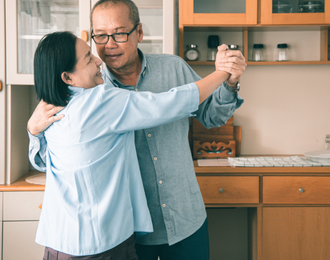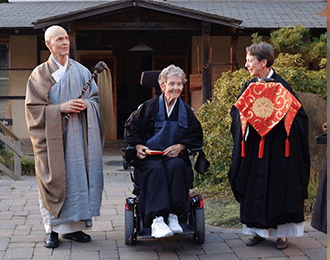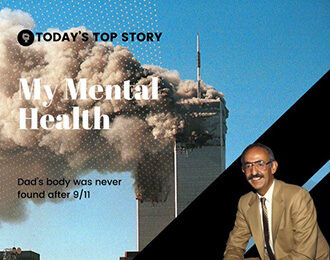Once upon a memory: caregivers brave the journey of loved ones with dementia
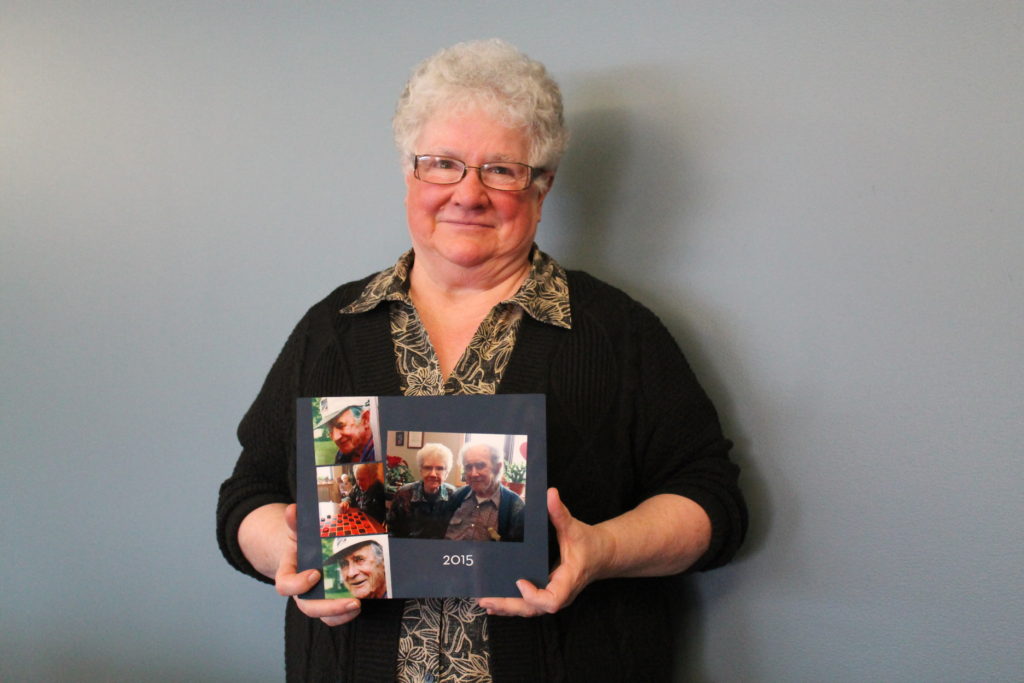
Tri Living Well – Updated for September 2021
Dementia affects millions of people across the U.S. each year, robbing people of their independence and the very memories that make them who they are. At its core, dementia describes symptoms that cause the loss of memory or other thinking skills that can take away a person’s ability to perform everyday activities.
Though Alzheimer’s is the most common type of dementia, Brenda Packer, who facilitates the Memory Loss Support Group for Caregivers at Tri-County Health Care, explains that Alzheimer’s is just one of many memory loss diseases.
“Dementia is an umbrella, and Alzheimer’s is just one of the many different dementias. Like the differences between cancers,” she said.
Brenda has experienced caregiving firsthand when her husband’s father developed dementia.
Once the dementia diagnosis is confirmed, then begins a lengthy journey for that person as well as for those who are now tasked with caring for them. It’s hard to know what to expect from one day to the next as they face the unknown and unpredictability of the disease that’s stealing away their loved one.
Karen
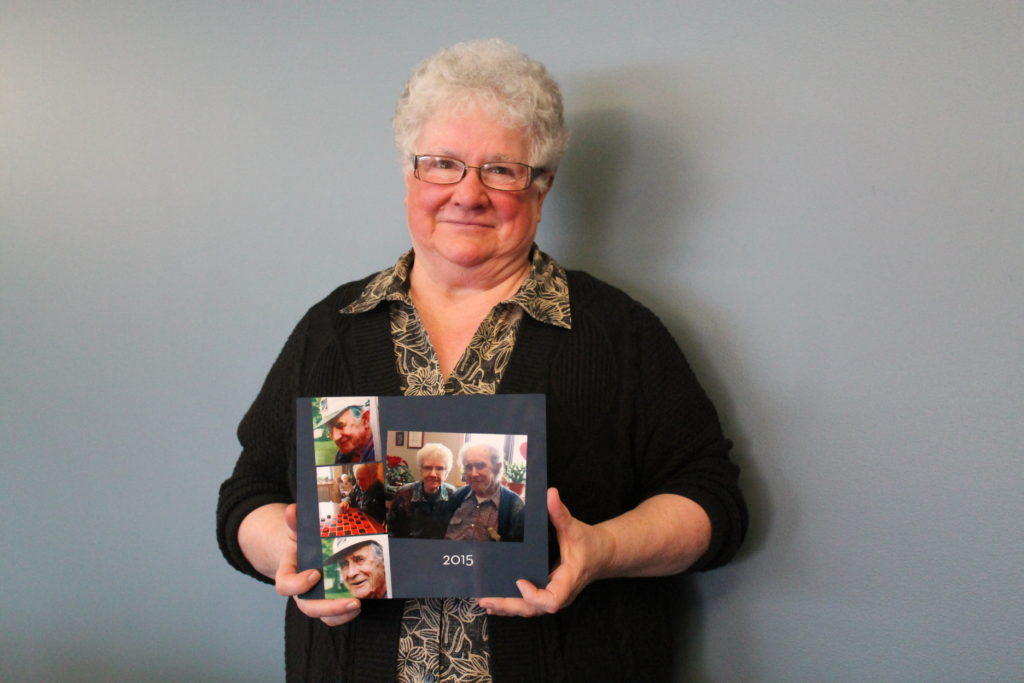
Karen Leverington’s parents, William and Marlos Weiss, were married for 72 years. She described them as a quiet couple who would “give you the shirt off their back. If there was something that needed to be done, they’d be the first ones there to help.”
In 2012, William developed early symptoms of Alzheimer’s. Karen and her husband, Gerald, decided to add on to their home and encouraged her parents to sell their Pine River home and move in with them.
William’s condition soon worsened. He forgot how to play checkers, a game he loved. He lost interest in listening to church services on the radio, and developed severe sundowners, where he had his days and nights mixed up.
After a long battle, William passed away in November of 2015 at the age of 95. Sadly, Marlos’ health took a turn for the worse not long after.
“About two weeks after he passed away, she had full blown vascular dementia,” Karen said. “She had been holding it together for his sake.”
Being a vascular disease affecting her veins and arteries, Marlos’ dementia caused small strokes and began to take a toll on her body. Karen and Gerald decided she needed more attentive care and moved her to an assisted living facility north of Wadena owned by Karen’s daughter. After that, Marlos declined rapidly and passed away in March of 2017 at the age of 92.
“It’s not easy, and the thing that you realize down the road is that you lose them twice,” Karen said. “You lose them to the disease because most of the people that have Alzheimer’s or dementia don’t recognize their family after a time. We did not experience that. They knew us. But you lose them to the disease and you watch them suffer, and you suffer. Then eventually death comes and you lose them again.
“Once they’re gone, you have all these thoughts of could I have done something else differently, could I have helped them more? You can’t dwell on that. We did the best we could, and in the state they were in, they were happy.”
Lillian

Lillian Pladson’s caregiving journey began in 2009 when her husband, Graydon, suffered a health emergency of an irregular heartbeat. His health continued to decline, leading to seizures and memory loss. As of now, he still recognizes his wife, but his thoughts are very much trapped in the past, and there are times he struggles to make sense.
Lillian was his primary caregiver up until three years ago when he was moved to a veteran’s home in Fergus Falls. She tries to visit as much as she can. “It’s the nicest place. I can feel free,” she said. “They are so friendly and so helpful. If you go there, they’re there to help you out too.”
Graydon taught business classes at the tech college in Wadena for 30 years, and the students and instructors who have approached Lillian about her husband are a testament to how well he was liked. Though he no longer behaves like the man he once was, Lillian believes that he and the others with memory loss at the veteran’s home have not lost the essence of who they are.
“They’re still human beings,” she said. “I think deep down, they still know what’s going on.”
You can’t do it alone
Caregivers of a loved one with dementia have a huge load on their shoulders. Brenda recommends finding a support group to have a place to ease that load, even if just a little bit.
“It’s reassuring to be in a group that can say that happened to me too. I was there. Or I felt that way too,” Brenda said. “There’s nobody that can say they know how somebody feels unless they’ve been on similar journeys.”
Brenda focuses on education, helping caregivers learn what to expect, how to interact with their loved one, what financial or legal documents to get in order and explaining the different dementia diseases. She also makes sure to prioritize taking care of the caregiver.
“They think they can always do it all by themselves,” she said. “I think the thing about the caregivers is they are very resilient people because this is a marathon.”
Karen initially resisted going to the support group. “My husband kept telling me, ‘You need to go to that support group, and I kept saying, ‘I’m fine. I’m fine.’ I didn’t realize how I wasn’t that fine.”
Now, she has been going for almost four years, and she has developed deep friendships. After her parents passed away, she considered not going anymore, but she believes others can still learn from her experiences.
“I call this a journey because when you are thrown into the situation, you have no idea what’s down the road in front of you,” Karen said. “That’s why support group is so important because you learn from the other people who are there, what they’re going through.”
Lillian has also been attending the support group about four years, and she finds the companionship incredibly valuable. “I think you need some help. You’re kind of alone,” she said. “People know what you’re going through. I don’t think a lot of people realize there’s other things involved with memory loss.”
To sum up the support group, Karen uttered one final statement: “In group, you laugh together, you cry together, and you lift each other up.”

